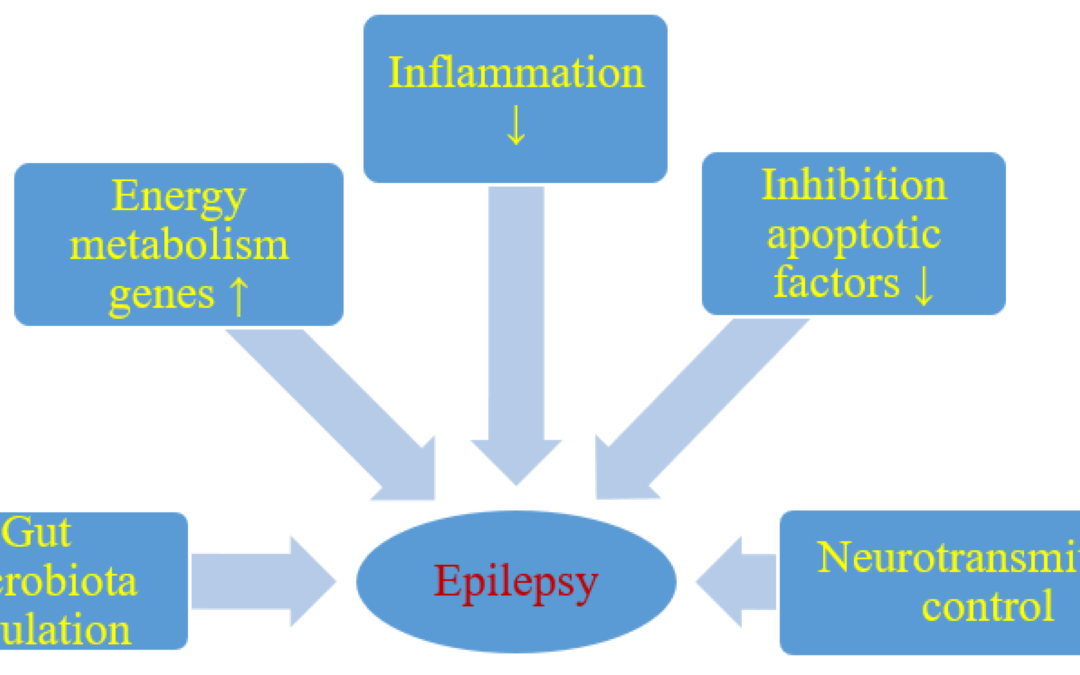Have you heard about the keto diet? If you’re looking to lose weight and improve your health, this might just be the diet for you. But did you know that it also has some amazing benefits for individuals with epilepsy? In this article, we’ll delve into the topic of the keto diet and how it can positively impact those who suffer from epilepsy. So, whether you’re considering starting the keto diet or you simply want to learn more about its benefits, keep reading! You’re in for some valuable insights.
When it comes to epilepsy, the keto diet has been found to be incredibly beneficial. But what exactly is the keto diet? Well, it’s a low-carb, high-fat diet that has been proven to help individuals lose weight and improve their overall health. In the case of epilepsy, following a custom keto diet plan has been shown to drastically reduce seizures in both children and adults. The main mechanism behind this is ketosis, a metabolic state in which the body uses ketones for energy instead of glucose. By adopting a keto diet, you can effectively increase the production of ketones in your body, which in turn helps to control epileptic seizures. Impressive, right? Well, there’s much more to learn about the benefits and science behind the keto diet for epilepsy, so keep reading and prepare to be amazed!
The Benefits of a Keto Diet for Epilepsy
Understanding the Keto Diet
What is the Keto Diet?
The ketogenic diet, or simply the keto diet, is a low-carb, high-fat diet that has gained popularity for its potential health benefits. The main principle behind the keto diet is to drastically reduce the intake of carbohydrates and replace them with healthy fats. By doing so, the body enters a state called ketosis, where it starts burning fat for fuel instead of relying on glucose from carbohydrates.
How Does the Keto Diet Work?
The keto diet works by reducing the intake of carbohydrates to a minimum and increasing the consumption of healthy fats. Typically, carbohydrates are the body’s primary source of energy, but when you limit carb intake, your body turns to fat for fuel. As a result, the liver produces molecules called ketones, which are then used as an alternative energy source.
Types of Foods Allowed on the Keto Diet
On the keto diet, you are encouraged to consume foods that are rich in healthy fats such as avocados, nuts, seeds, and olive oil. Protein is also an essential part of the diet and can be obtained from sources such as meat, fish, and eggs. However, the consumption of carbohydrates, particularly those high in sugar and starch, is limited. This means that foods like bread, pasta, and sugary treats should be avoided.
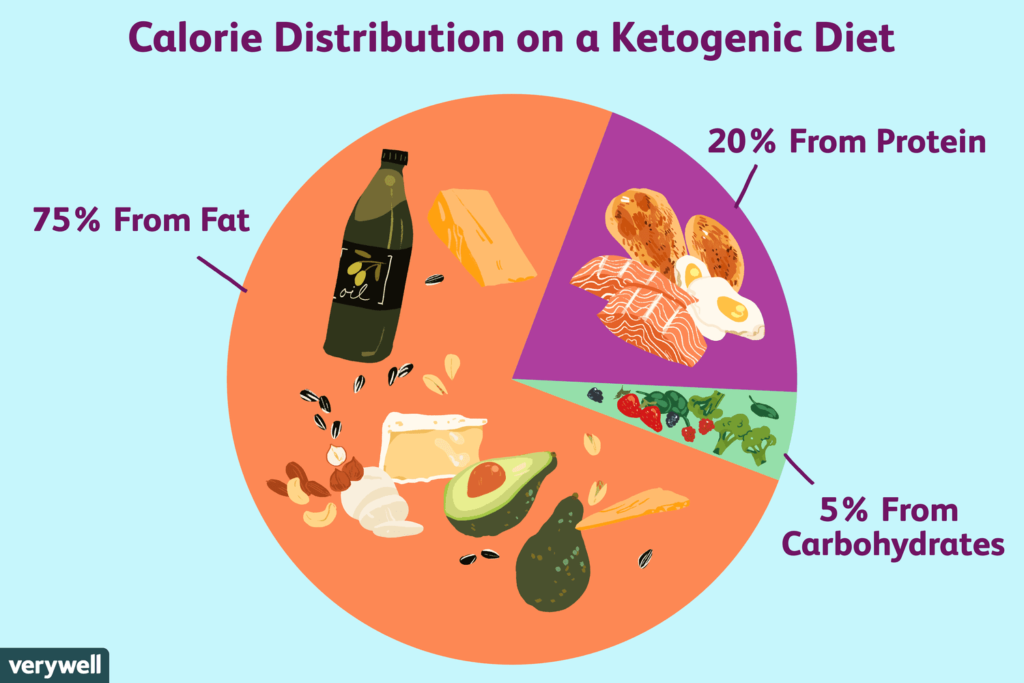
The Link Between Keto Diet and Epilepsy
How the Keto Diet Helps with Epilepsy
The keto diet has shown potential benefits for individuals with epilepsy, particularly those who do not respond well to traditional antiepileptic drugs. Studies have indicated that the ketogenic diet may help reduce seizures in both children and adults with epilepsy. Although the exact mechanism behind this improvement is not fully understood, researchers believe that ketones produced during ketosis have a protective effect on the brain.
Scientific Evidence Supporting Keto Diet for Epilepsy
Numerous scientific studies have investigated the efficacy of the keto diet in managing epilepsy. One notable study published in 2008 found that nearly 40% of children with epilepsy experienced a significant reduction in seizures while following a ketogenic diet. Another study published in 2018 concluded that the ketogenic diet is a safe and effective alternative treatment for children and adults with drug-resistant epilepsy.
Effectiveness of Keto Diet Compared to Other Treatments
When compared to other treatments for epilepsy, such as antiepileptic drugs, the keto diet has shown promising results. In fact, some studies suggest that the ketogenic diet may be more effective in reducing seizure frequency than certain medications. Additionally, the diet has been found to have fewer adverse side effects compared to long-term drug therapy.
Benefits of a Keto Diet for Epilepsy
Reduces Seizure Frequency and Severity
One of the main benefits of the keto diet for epilepsy is its ability to reduce seizure frequency and severity. By entering a state of ketosis, the brain is provided with an alternative fuel source that can help stabilize electrical brain activity and decrease the occurrence of seizures. Although the response to the keto diet may vary from person to person, many individuals have reported a significant reduction in seizure frequency after adopting the diet.
Improves Cognitive Functioning
In addition to reducing seizures, the keto diet has also been shown to improve cognitive functioning in individuals with epilepsy. Some studies suggest that the diet may enhance memory, attention, and overall cognitive performance. This improvement in cognitive function is believed to be associated with the neuroprotective properties of ketones, which can provide alternative energy to the brain.
Enhances Quality of Life for Epileptic Individuals
Living with epilepsy can significantly impact an individual’s quality of life. The fear of experiencing seizures and the side effects of medication can make everyday activities challenging. However, the keto diet offers hope for those seeking an alternative way to manage their epilepsy. By reducing seizure frequency and improving overall well-being, the diet can greatly enhance the quality of life for individuals with epilepsy.
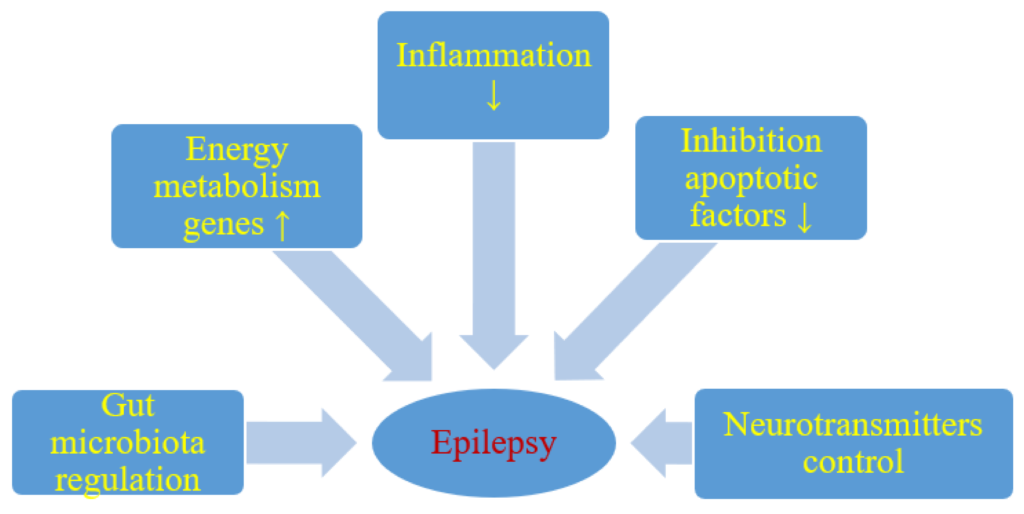
Implementing a Keto Diet for Epilepsy
Consulting with a Healthcare Professional
Before embarking on a keto diet for epilepsy, it is crucial to consult with a healthcare professional, particularly a registered dietitian or nutritionist experienced in managing the diet. They can assess your medical history, current medications, and individual health needs to determine if the keto diet is suitable for you.
Customizing a Keto Diet Plan
A customized keto diet plan is essential for effectively managing epilepsy. The dietitian or nutritionist will work closely with you to design a meal plan that aligns with your specific dietary requirements and preferences. They will ensure that the diet is nutritionally balanced and meets your body’s nutritional needs while keeping carbohydrate intake low.
Monitoring the Ketogenic State
Regular monitoring of the ketogenic state is crucial to ensure the diet is being followed correctly and to optimize its effectiveness. Monitoring usually involves periodic blood tests to measure the levels of ketones in the body. This will help determine if you are in ketosis, which is necessary for deriving the therapeutic benefits of the keto diet.
Dietary Considerations and Tips
Ensuring Adequate Nutrient Intake
While the keto diet may be effective for managing epilepsy, it is important to ensure adequate nutrient intake. Since the diet restricts certain food groups, it is necessary to plan meals carefully to include a variety of nutrient-dense foods. This may involve incorporating low-carb vegetables, lean protein sources, and healthy fats into the diet to maintain a well-rounded nutritional profile.
Maintaining Proper Hydration
When following the keto diet, it is important to maintain proper hydration. The increased excretion of water and electrolytes that occurs during ketosis can increase the risk of dehydration. Making sure to drink enough water and consuming electrolyte-rich foods or supplements can help prevent this.
Managing Possible Side Effects
As with any dietary change, there may be some side effects when starting the keto diet for epilepsy. These can include fatigue, constipation, and changes in blood lipid levels. However, most side effects are temporary and can be managed through proper nutrition and lifestyle adjustments. It is important to communicate any concerns or symptoms with your healthcare professional.

Keto Diet and Medication
Interactions between Keto Diet and Antiepileptic Drugs
The keto diet can potentially interact with antiepileptic drugs, and adjustments to medication dosages may be required. As the keto diet affects the body’s metabolism, it can alter the way certain drugs are absorbed or processed. It is crucial to work closely with your healthcare provider to monitor and adjust medication dosages as needed.
Adjusting Medication Dosages
When starting the keto diet, it is important to monitor how it affects your epilepsy medication’s effectiveness. Some individuals may experience a reduction in seizure frequency and severity, leading to the possibility of adjusting medication dosages. However, any adjustments should only be made in consultation with a healthcare professional.
Collaborating with Healthcare Providers
Collaboration with healthcare providers is essential when considering a keto diet for epilepsy. It is important to keep your healthcare team informed about dietary changes, medication adjustments, and any concerns or improvements you may experience. This collaborative approach ensures your overall health and well-being are properly managed.
Other Potential Health Benefits of Keto Diet
Weight Loss and Metabolic Health
Weight loss is one of the most well-known benefits of the keto diet. By reducing carbohydrate intake and increasing healthy fat consumption, the body enters a metabolic state that promotes fat burning. Studies have shown that the keto diet can lead to significant weight loss and improvements in metabolic health markers, such as blood sugar and cholesterol levels.
Reduced Inflammation
Chronic inflammation is linked to various health conditions, including epilepsy. The keto diet has been shown to have anti-inflammatory effects, potentially reducing inflammation in the body. This may have positive implications for individuals with epilepsy, as inflammation can contribute to seizure activity.
Improved Heart Health
The keto diet has also been associated with improved heart health. By reducing carbohydrate intake, the diet can help lower triglyceride levels, increase HDL (good) cholesterol, and reduce blood pressure. These improvements in cardiovascular health are beneficial for individuals with epilepsy, as they may also be at an increased risk of cardiovascular disease.
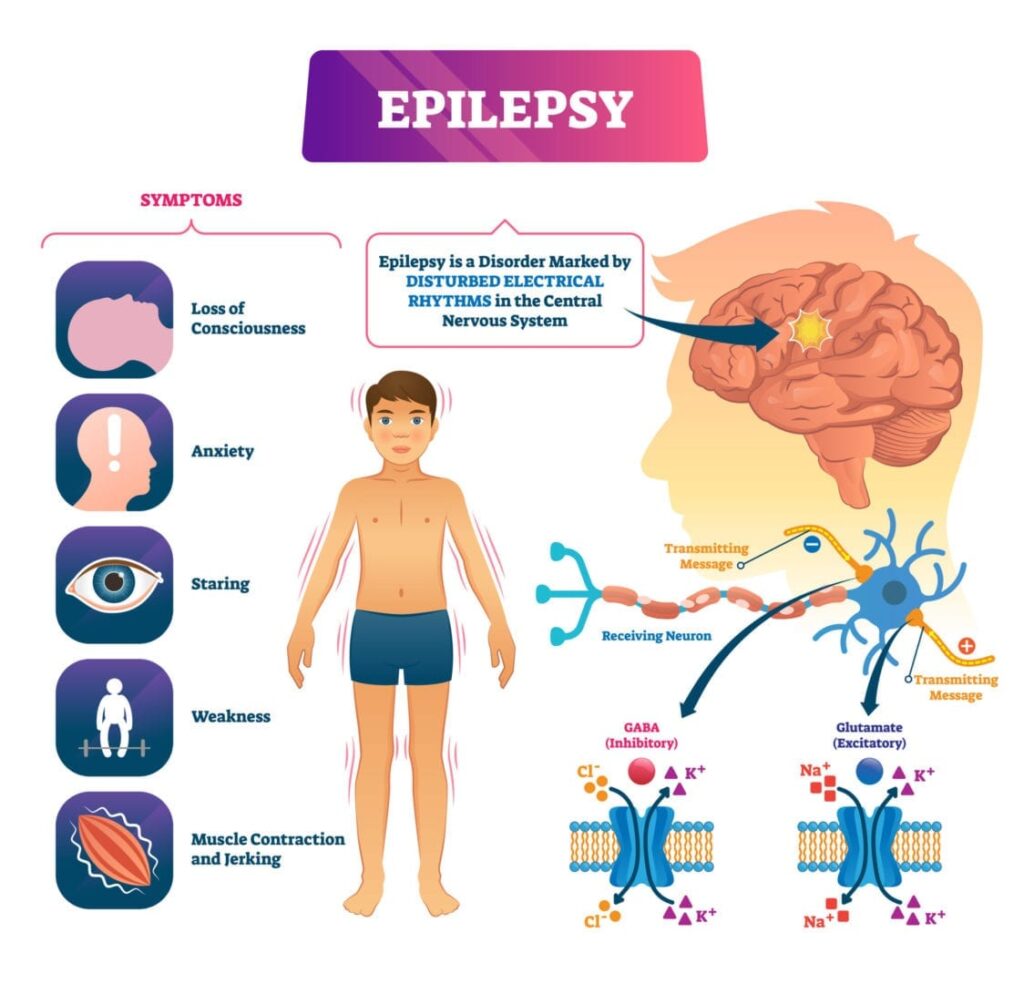
Personalized Keto Diet Plans
Benefits of Customizing a Keto Diet Plan
Every individual has unique dietary needs and preferences. A personalized keto diet plan allows for customization based on these factors, optimizing the diet’s effectiveness. By tailoring the meal plan to your specific requirements, you can ensure it is sustainable and enjoyable, increasing the likelihood of long-term success.
Working with Nutritionists or Dieticians
To create a personalized keto diet plan, it is advisable to work with professionals such as nutritionists or dieticians. These professionals are trained to assess your individual needs, provide guidance on food choices, and monitor your progress throughout the diet. They can also provide ongoing support and answer any questions or concerns you may have.
Long-term Sustainability and Success
A key factor in the success of any dietary approach is its long-term sustainability. By customizing a keto diet plan and working with professionals, you can develop a diet that meets your needs and preferences while still achieving the desired health benefits. This increases the likelihood of long-term adherence to the diet, leading to sustained positive outcomes.
Considerations and Precautions
Not Suitable for Everyone
While the keto diet may have potential benefits for epilepsy management, it is not suitable for everyone. Individuals with certain medical conditions, such as pancreatitis, liver disease, or gallbladder disease, should avoid the keto diet. Additionally, pregnant or breastfeeding individuals should consult with their healthcare provider before considering the diet.
Possible Short-term Side Effects
When starting the keto diet, some individuals may experience short-term side effects known as the “keto flu.” These can include fatigue, headache, dizziness, nausea, and constipation. It is important to remember that these side effects are temporary and usually subside as the body adapts to ketosis.
Monitoring and Adjusting the Diet
Regular monitoring and adjustments may be necessary to ensure the continued effectiveness of the keto diet for epilepsy management. As individual needs and health conditions can change over time, periodic reassessment by healthcare professionals is important. They can help optimize the diet to meet your evolving requirements and address any concerns or challenges you may face.
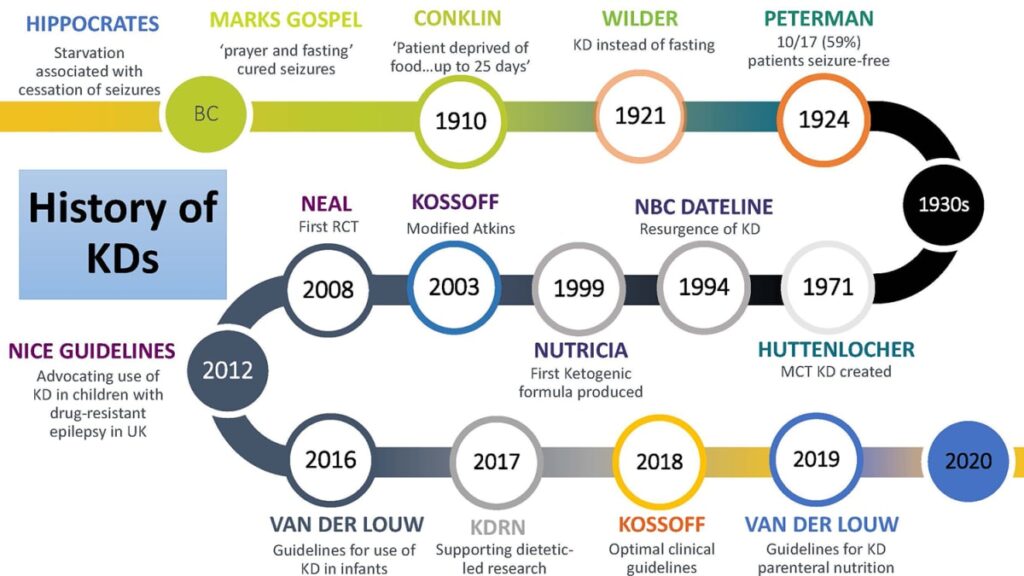
Conclusion
The keto diet holds immense potential for individuals with epilepsy, offering benefits beyond just weight loss. By reducing seizure frequency and severity, improving cognitive functioning, and enhancing overall well-being, the keto diet can significantly impact epilepsy management. However, it is important to consult with healthcare professionals, customize a diet plan, and monitor its effectiveness to ensure safety and maximize the benefits. As future research continues to explore the link between the keto diet and epilepsy, it is encouraging for individuals living with epilepsy to consider this dietary approach as a potential alternative or complementary therapy.

